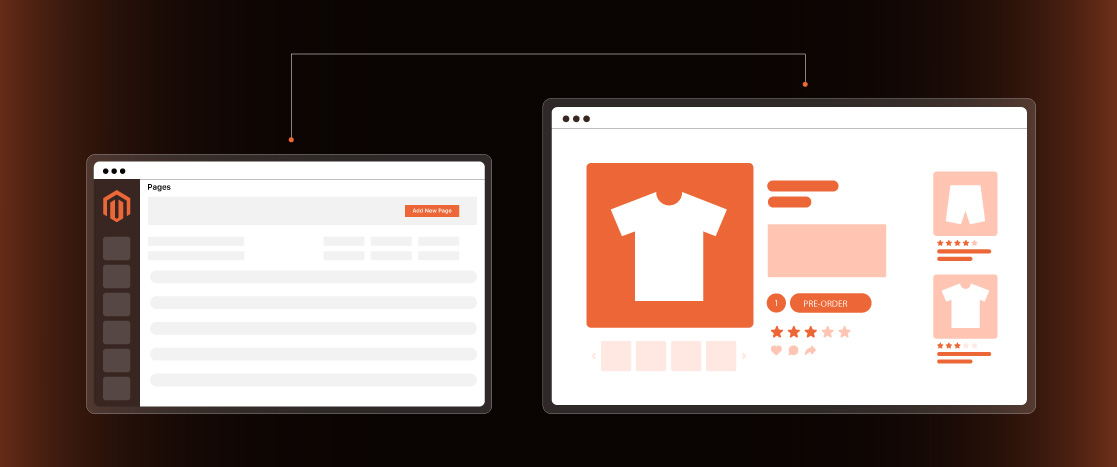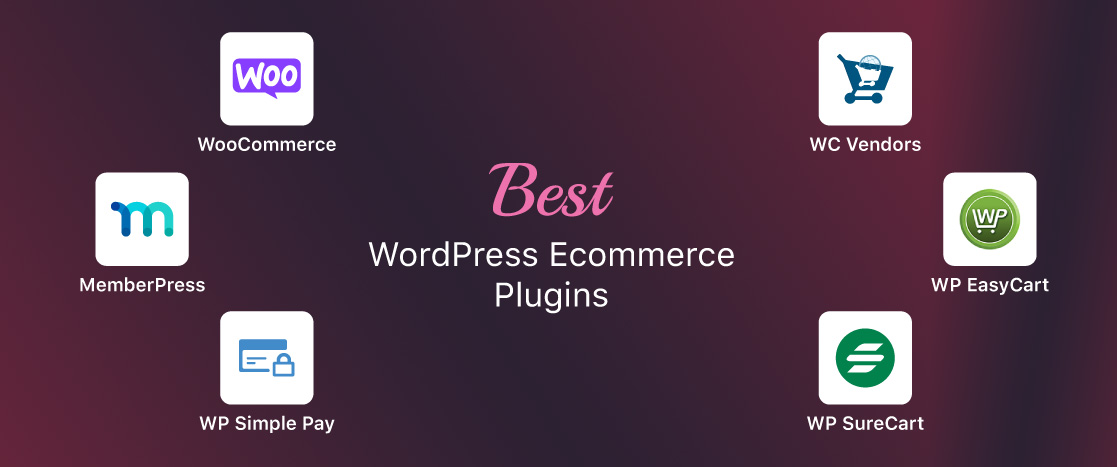
Top Choices for E-Commerce Customer Support Tools
- Discovering the Importance of Ecommerce Customer Support
- Top 7 Ecommerce Customer Support Tools for 2024
- Benefits of Using Customer Support Tools in Ecommerce
- Essential Features of Ecommerce Customer Support Tools
- How to Choose the Right Ecommerce Customer Support Tool for Your Business
- Conclusion
- FAQs
In this new e-commerce era, how do you stand out from the competition and attract clients (and their loyalty)? Through more brilliant, not more complex, work. With the correct tactics and state-of-the-art resources, customer service may be transformed from a cost center into a competitive advantage.
I’ll outline the top e-commerce customer support software choices in this post so you can give your clients experiences they won’t soon forget. Let’s address one crucial question first, though, before we get started.
- Discovering the Importance of Ecommerce Customer Support
- Top 7 Ecommerce Customer Support Tools for 2024
- Benefits of Using Customer Support Tools in Ecommerce
- Essential Features of Ecommerce Customer Support Tools
- How to Choose the Right Ecommerce Customer Support Tool for Your Business
- Conclusion
- FAQs
Discovering the Importance of Ecommerce Customer Support
Customer assistance is essential in e-commerce because it directly impacts customer happiness, trust, and retention. Customers depend on support to promptly address difficulties in an online shopping setting, whether tracking purchases, resolving technical issues, or responding to product inquiries. Good customer service is essential to a successful online business because it guarantees a flawless purchasing experience, lowers cart abandonment, and increases customer loyalty.
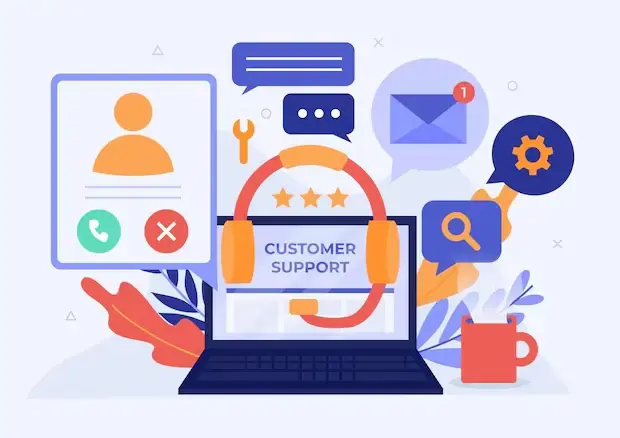
Why Customer Support Matters in Online Shopping
Customer support plays a vital role in converting potential buyers into loyal customers in ecommerce. Since the buying process occurs online, any friction during or after the purchase can lead to lost sales or even negative reviews. Quick and helpful customer support is essential for building trust. It also ensures that customer queries or issues are resolved promptly, contributing to a smoother shopping experience and increased customer retention. Customers who receive positive support experiences are more likely to return and make repeat purchases, directly impacting sales.
The Shift from Traditional to Digital Support Systems
ecommerce has revolutionized the way customer support is handled. Unlike traditional brick-and-mortar stores where face-to-face interactions were the norm, ecommerce customer support is digital. Modern tools like live chat, AI chatbots, and multichannel communication systems have emerged as replacements for traditional phone support. These tools provide customers with faster responses and multiple avenues to seek help. In addition, businesses can now cater to customers across different time zones without the need for a large 24/7 support team. This digital shift has increased the efficiency and scalability of customer support operations while simultaneously raising customer expectations for swift, accurate, and helpful assistance.
| S. No. | Names | Pricing | Best For | Free Versions |
| 1 | Zendesk | Starts at $55/agent per month | Large businesses needing multi-channel support, automation, and AI-powered chatbots | No, but offers a free trial |
| 2 | Freshdesk | Free plan available; Paid plans start at $15/agent per month | Small to mid-sized businesses looking for ticketing, automation, and omnichannel support | Yes, with limited features |
| 3 | LiveChat | Starts at $20/agent per month | Real-time customer chat and integration with e-commerce platforms | No, but offers a 14-day free trial |
| 4 | Gorgias | Starts at $10/month (ticket-based pricing) | E-commerce stores using Shopify, WooCommerce, and Magento for automated responses | No, but offers a 7-day free trial |
| 5 | Tidio | Free plan available; Paid plans start at $29/month | AI-powered live chat, chatbots, and lead generation for small businesses | Yes, with limited chatbot usage |
| 6 | HelpCrunch | Starts at $12/month | Customer communication, email automation, and knowledge base creation | No, but offers a 14-day free trial |
| 7 | Olark | Starts at $29/agent per month | Live chat with real-time visitor insights and automation | No, but offers a 14-day free trial |
Top 7 Ecommerce Customer Support Tools for 2024
In 2024, the top ecommerce customer support tools offer advanced features to enhance customer experience and streamline support processes. Zendesk leads with multichannel support and powerful analytics, while Freshdesk is known for its user-friendly ticketing system. LiveChat excels in real-time interactions, and Gorgias integrates seamlessly with Shopify for ecommerce businesses. Tidio offers AI-powered chatbots, and HelpCrunch combines live chat and email support with a knowledge base. Lastly, Olark provides simple, effective live chat solutions for small to mid-sized businesses.
Zendesk
Zendesk is one of the most widely used customer service platforms, offering robust features tailored to ecommerce businesses. It provides comprehensive multichannel support, integrating email, chat, and social media interactions into one interface. Zendesk also offers ticket management, enabling businesses to keep track of each customer query and its resolution. In addition, the platform comes with advanced analytics, allowing businesses to measure key performance indicators (KPIs) like response time and customer satisfaction.
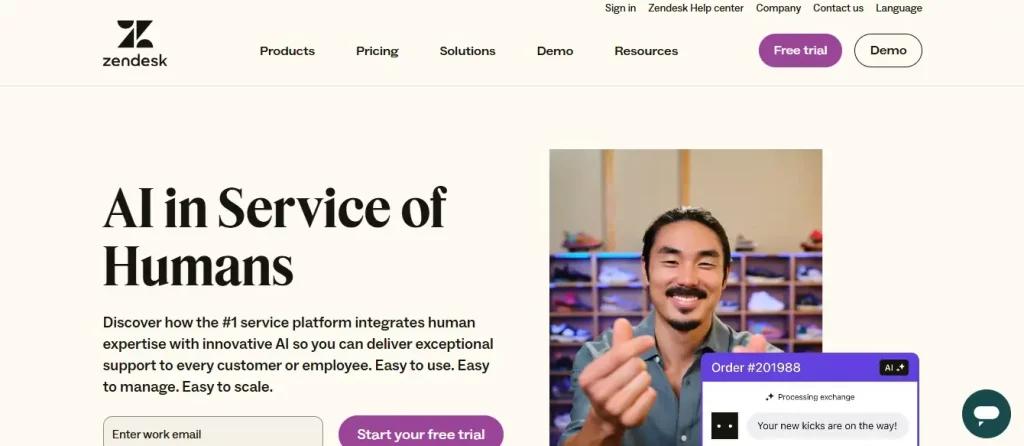
Freshdesk
Freshdesk is a user-friendly customer support tool that’s ideal for small to medium-sized businesses. It combines email, live chat, and phone support with an intuitive ticketing system. Freshdesk also incorporates AI-powered bots to assist with basic queries and automation tools to streamline workflows. Its easy setup and scalability make it an excellent option for businesses that are growing and need a reliable customer support solution.
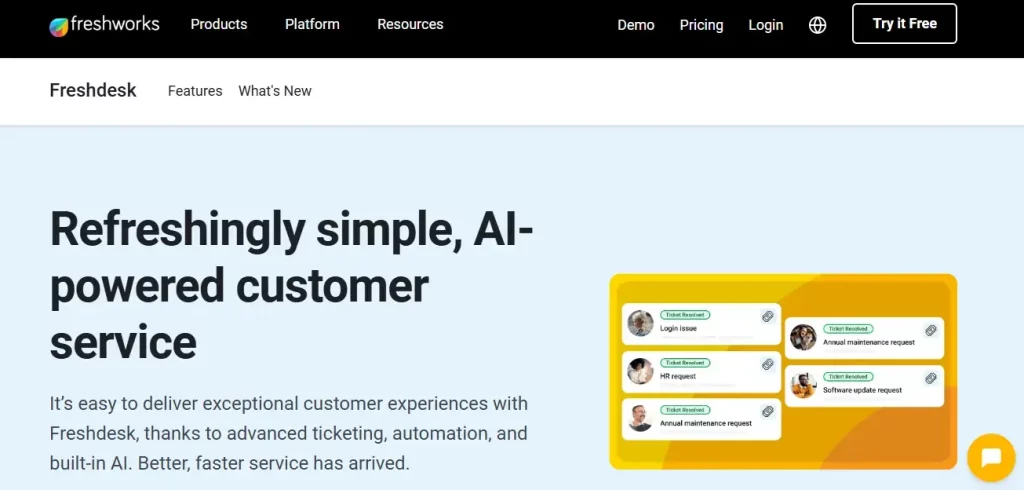
LiveChat
LiveChat focuses primarily on real-time customer communication. Its chatbox widget is easy to implement on any ecommerce site, allowing customers to ask questions and get answers instantly. LiveChat integrates with chatbot tools, which helps automate responses to common queries. It also offers proactive chat invitations, where agents can reach out to customers who may need help, improving customer engagement and reducing bounce rates.

Gorgias
Gorgias is designed specifically for ecommerce businesses, with a strong focus on integrating with Magento and other ecommerce platforms. It allows businesses to manage customer service across email, chat, and social media. One of Gorgias’ standout features is its ability to automate responses based on specific customer behaviors, like checking order status or addressing shipping issues. This allows businesses to provide faster, more efficient service without sacrificing quality.

Tidio
Tidio is an AI-powered chatbot solution ideal for small businesses that need to manage high volumes of customer queries. The platform offers live chat, email, and automated chatbot options that provide round-the-clock support. Tidio is easy to integrate into any website, and its chatbots can be customized to handle specific customer inquiries, reducing the workload on human agents.
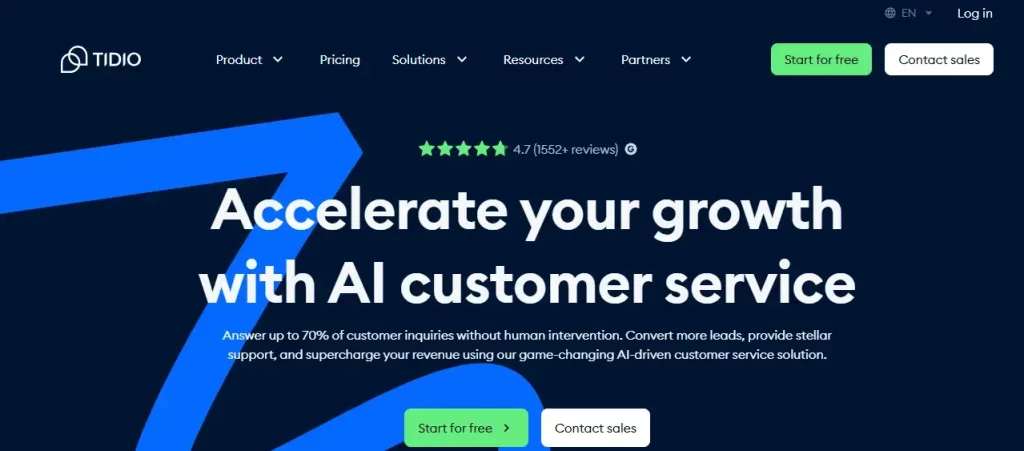
HelpCrunch
HelpCrunch is a versatile tool that combines live chat, email, and knowledge base creation in one platform. It allows businesses to provide multichannel support, ensuring customers can reach out through their preferred method. HelpCrunch also helps businesses build self-service knowledge bases, which are essential for answering frequently asked questions and reducing the number of support tickets.

Olark
Olark is a simple yet effective live chat solution focusing on real-time customer interaction. It enables businesses to engage with customers as they browse products, ask questions, or seek help. Olark integrates with CRMs to ensure that customer data is available during chats, allowing support agents to provide personalized assistance. It also offers features like chat transcripts and real-time reporting to monitor performance.

Benefits of Using Customer Support Tools in Ecommerce
Using customer support tools in ecommerce offers several key benefits. These tools enhance customer satisfaction by providing fast, efficient responses through live chat, chatbots, and multichannel support. Support tools ensure 24/7 availability, catering to global customers across time zones. Additionally, they reduce operational costs by minimizing the need for large support teams, while still delivering high-quality customer service.
Enhanced Customer Satisfaction
One of the primary benefits of using customer support tools is improved customer satisfaction. Quick response times, personalized service, and round-the-clock availability all contribute to happier customers. Tools like live chat and AI chatbots ensure that customer queries are handled promptly, reducing frustration and enhancing the overall shopping experience.
Improved Efficiency through Automation
Automation is a game-changer in customer support. By automating repetitive tasks like answering FAQs or providing order status updates, businesses can focus their resources on more complex issues. Chatbots and automated ticketing systems ensure that customers receive fast, accurate responses, which reduces the workload on human agents and increases operational efficiency.
24/7 Availability for Global Customers
In a global market, businesses must be able to support customers across different time zones. Customer support tools that offer 24/7 availability, such as AI-powered chatbots or self-service options, ensure that businesses can assist around the clock. This is especially important for ecommerce businesses with international customers who expect help whenever they need it.
Cost-Effective Support Solutions
Investing in customer support tools can save businesses money in the long run. By automating processes and providing self-service options, businesses can reduce the need for large customer support teams. Tools like chatbots and ticketing systems also help streamline operations, leading to cost savings while maintaining high-quality customer service.

Essential Features of Ecommerce Customer Support Tools
Ecommerce customer support tools need essential features to enhance user experience and efficiency. Multichannel support allows customers to reach out via their preferred platforms, such as chat, email, or social media. Ticket management systems organize and prioritize issues, ensuring nothing is overlooked. Real-time monitoring and analytics enable businesses to track performance and continuously improve support quality.
Multichannel Support
In today’s diverse digital landscape, customers expect support across multiple channels. This includes email, social media, live chat, and phone support. Multichannel support tools ensure that customers can reach your business through their preferred medium, be it a chat box on your website or a social media platform like Facebook or Twitter. A seamless multichannel system integrates these interactions into one centralized hub, enabling support teams to track conversations across different platforms and provide consistent, effective service.
AI-Powered Chatbots
AI-driven chatbots have become a cornerstone of modern ecommerce customer support. These tools are designed to provide instant responses to customer queries, resolving simple issues like order tracking, FAQs, or product inquiries without human intervention. Not only do chatbots significantly reduce response times, but they also free up human agents to handle more complex or sensitive inquiries. By automating repetitive tasks, businesses can ensure that customers receive quick answers, boosting satisfaction while reducing the workload on support staff.
Ticket Management and Help Desks
Ticketing systems are essential for organizing and prioritizing customer queries. Help desks streamline the process of handling customer inquiries by converting each issue into a “ticket” that can be assigned, tracked, and resolved efficiently. This ensures that no inquiry is lost in the shuffle, and customers receive timely responses. For businesses that deal with high volumes of inquiries, a ticket management system is invaluable for keeping operations organized, improving resolution times, and ensuring customer satisfaction.
Self-Service Options
Not all customers want to interact with a live agent for minor queries, which is where self-service options come into play. By providing knowledge bases, FAQ sections, and how-to guides, businesses empower customers to solve their problems independently. Tools that help create these self-service portals are increasingly popular in the ecommerce world, as they reduce the number of support requests and provide customers with instant access to the information they need.
Real-time Monitoring and Analytics
To continuously improve customer support, it’s essential to track how well your support systems are performing. Real-time analytics allow businesses to monitor response times, customer satisfaction, and resolution rates. By gaining insights into the effectiveness of their support operations, businesses can identify bottlenecks or areas for improvement. The best customer support tools come equipped with built-in analytics, helping businesses make data-driven decisions to optimize the customer experience.
How to Choose the Right Ecommerce Customer Support Tool for Your Business
Choosing the right ecommerce customer support tool requires careful consideration of your business’s unique needs. Start by assessing your customer base—do they prefer live chat, email, or social media support? Look for tools that offer multichannel support and integrate with your existing platforms, like CRM or inventory management systems.
Scalability is key if your business is growing, so opt for solutions that can expand your operations. Finally, evaluate the tool’s features like automation, analytics, and customization to ensure it fits your budget and enhances your customer experience.
Identifying Your Specific Support Needs
Every ecommerce business has different needs when it comes to customer support. Businesses must first assess their specific requirements, such as the volume of customer inquiries, the types of products sold, and customer demographics. For example, a small business might prioritize an AI chatbot for handling routine questions, while a larger business might require a full-service help desk solution that integrates with multiple platforms.
Evaluating Scalability
As your business grows, so will the demand for customer support. It’s essential to choose tools that can scale with your business. Whether you’re dealing with an increase in sales, a broader customer base, or more complex products, your support system should be able to handle the growing number of queries and issues without a dip in performance.
Budget Considerations
Budget is always a key factor when choosing customer support tools. While some tools may offer advanced features, they may not be necessary for smaller businesses with limited resources. Balancing affordability with the essential features your business needs is crucial. Fortunately, many customer support tools offer tiered pricing, allowing businesses to start small and upgrade as needed.
Integration with Existing Ecommerce Platforms
Integration is a vital consideration when choosing a support tool. The tool should seamlessly integrate with your ecommerce platform, whether it’s Shopify, WooCommerce, Magento, or another system. This ensures that support agents have access to the information they need, such as customer purchase history, order details, and shipping status, which allows for more personalized and efficient customer service.
Conclusion
In the competitive world of ecommerce, customer experience is paramount, and customer support tools are at the heart of delivering that experience. From AI-powered chatbots to comprehensive ticket management systems, the right tools can streamline operations, improve customer satisfaction, and contribute to long-term business success. By carefully evaluating your business’s specific needs and choosing scalable, cost-effective solutions, you can create a customer support system that meets and exceeds customer expectations.
Ultimately, investing in the right ecommerce customer support tools is an investment in your business’s future, as happy customers are more likely to return, leave positive reviews, and recommend your brand to others.
FAQs
How to choose the right help desk software for your e-commerce business?
Prioritize features like multi-channel support, smooth integration with your current e-commerce platform, a strong ticketing system, automation capabilities, customer-centric reporting, and scalability to meet your expanding needs when choosing a help desk software for your e-commerce company. Depending on your needs and budget, you may want to look at Zendesk, Freshdesk, Shopify Help Center, Zoho Desk, or Groove.
What are the benefits of an e-commerce help desk software?
E-commerce assistance software can enhance customer satisfaction, expedite processes, and offer customer care analytics.

